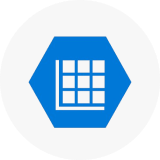
When it comes to data management, there are two main options: databases and data warehouses. Both have their unique benefits and drawbacks, so it can be challenging to decide which option is best for your business. This article will discuss the differences between databases and data warehouses and help you decide which option is right for you.
What Is a Database?
A relational database is a collection of data organized in a specific way. The difference in the information inside databases vs. data warehouses is that databases are typically used to store information that needs to be accessed quickly, such as customer records or product inventory. With an OLTP (online transaction processing) database, data is organized into small, manageable pieces that users can easily access.
The Benefits of Databases
There are several benefits of using a database, including:
- Databases are easy to use and understand: A stark difference between databases and data warehouses is their level of user-friendliness. Users can easily access and query data from a database. Whereas data warehouses, which source data from multiple locations may be initially be more difficult to understand.
- Databases offer fast access to data: Multiple users can access a database simultaneously, and data can be quickly retrieved from a database.
- Improved data security: With a database, you can improve your data security by controlling who has access to your data and their level of access. This helps to prevent unauthorized users from viewing or modifying your data.
- Increased efficiency: Another big difference between databases and data warehouses is the ease of finding data. Databases can help you quickly find the information you need without sifting through mountains of data.
When To Use a Database
As more businesses move to the cloud, data storage is becoming increasingly popular. Databases are effective in handling all kinds of data, with many use cases including:
- Customer data: Customer data can be stored in a database and quickly accessed when needed.
- Product data: Product information, such as inventory levels and pricing, can be stored in a database for easy access.
- Sales data: Sales data can track customer purchase history and trends.
- Financial data: Financial data, such as invoices and transactional data, can be stored in a database.
If your business collects data from multiple sources and databases, consider using software to manage them. DreamFactory is an API management platform that helps companies integrate all of their enterprise data on a single interface. This removes the need to choose between databases and data warehouses. For a comprehensive list of databases that DreamFactory can integrate, check our page here.
What Is a Data Warehouse?
A data warehouse is a larger, more centralized repository of data. Unlike transactional databases, data warehouses are designed for online analytical processing (OLAP) rather than for transaction processing. Data warehouses and OLAP systems typically store data from multiple sources, including OLTP databases, flat files, and third-party data. Data warehouses are often used for business intelligence and decision-making purposes.
The Benefits of Data Warehouses
There are several benefits of using a data warehouse, including:
- Improved decision making: With a data warehouse, you can easily generate reports and analytics that can help you make better business decisions.
- Scalability: Data warehouses can scale up or down as needed, making them a good option for businesses that are growing quickly.
- Rigid schema: A data warehouse has a rigid schema, which means data is stored in a specific way. This makes it easy to make analytical queries and generate reports.
When To Use a Data Warehouse
With data warehousing, businesses can get a single view of their big data, which can be helpful for data analysis. For companies that need to gather data from multiple sources or generate complex queries and reports, a data warehouse may be the right solution.
Businesses may need to gather data from multiple sources for many reasons, including:
- Generating financial reports: To create financial reports, companies need to collect data from various sources, including accounting software, CRM systems, and third-party data.
- Analyzing customer behavior: To understand customer behavior, companies need to collect data from social media, website analytics, and sales data.
- Identifying trends: To identify trends, businesses need to gather data from multiple sources, including market research, customer surveys, and data on social media.
The Relationship Between Databases and Data Warehouses
When comparing databases and data warehouses, it's important to note the relationship between the two entities. Databases typically aggregate data and send it to data warehouses via ETL (extract, transform, load) processes. Data warehouses store this data in a central location, where it can be easily accessed and analyzed through visualization.
While reviewing databases and data warehouses, it is important to note that they are not mutually exclusive. In fact, many businesses use both databases and data warehouses to get the most out of their data. For example, a company may use a database to store customer records and product inventory and then use a data warehouse to generate reports and analytics.
One of the key differences when looking at databases vs. data warehouses is the type of data they hold. Data warehouses typically hold historical and current data, while databases hold live, real-time data. Depending on how often the ETL process runs, data warehouses can have data that is only a few minutes old or data that is several months old. This means that databases usually have better data integrity and are more accurate due to holding new data.
While this may seem technical or complicated for some business owners, many tools exist to help those with no coding experience. DreamFactory's platform offers a low-code interface that allows team members to manage data without programming knowledge. For a comprehensive list of DreamFactory's benefits, check out our features page.
Which Data Model Is Right for Your Business
There are many factors to consider when choosing between databases and data warehouses, including:
- The type of data you need to store: If you only need to store live, real-time data, then a database may be the right choice. If you need to store historical data, a data warehouse may be a better option.
- The amount of information you need to store: Data warehouses can scale up or down as necessary, making them a good choice for businesses that are growing quickly and require large volumes of data.
- Your budget: Data warehouse architecture can be more expensive than databases, so a database may be the better choice if cost is a concern.
How DreamFactory Can Help With Your Data Needs
DreamFactory is an API management platform that can be used to connect data from disparate sources. Using a data mesh, DreamFactory can provide a unified view of your related data, regardless of where it is stored. This gives end-users the ability to create, read, update, and delete data from multiple databases using a single API call. With this solution, your business can simplify its data architecture rather than decide between databases and data warehouses. DreamFactory has helped hundreds of companies optimize their data structure. Check our customer stories page to see how other businesses have benefitted from our platform.
DreamFactory can also be used to generate reports and analytics from your data. With DreamFactory, you can connect to multiple data sources, including databases, ERP systems, CRM systems, and third-party data. This makes it easy to gather and optimize the data you need to make informed decisions.
Start a free trial today to learn more about how DreamFactory can help with your data needs.
Read more:
As a seasoned content moderator with a keen eye for detail and a passion for upholding the highest standards of quality and integrity in all of their work, Spencer Nguyen brings a professional yet empathetic approach to every task.
























 Blog
Blog
